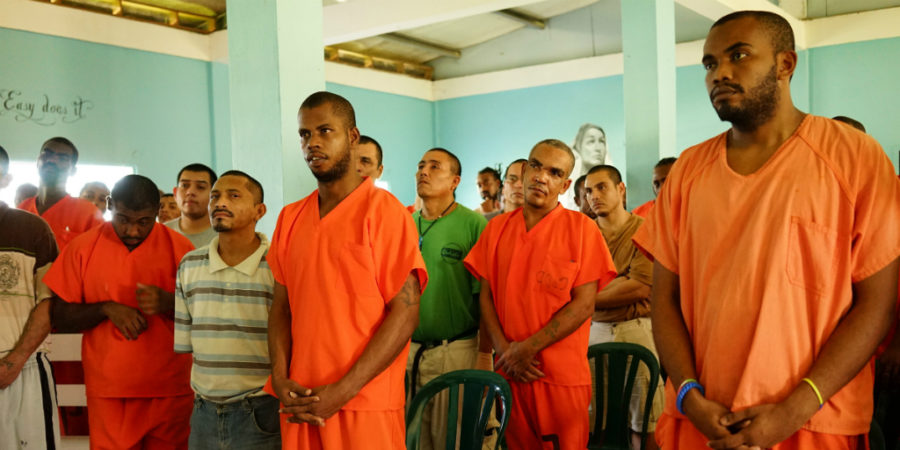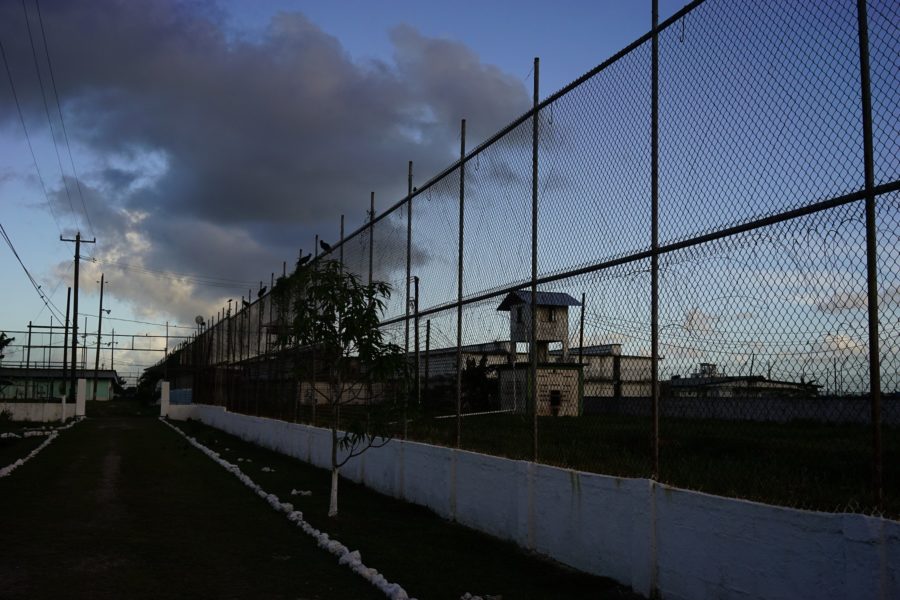9th October 2017 London, UK
Why we need to do away with the death penalty

It was Monday morning and my boss called me into his office, “I want you to go to Jamaica.” “When” I asked innocently, “tomorrow” he replied passing me a one way ticket. So began my journey into defending the rights of those facing the death penalty.
It was 1992 and I was just 24 years old. I found myself standing outside St Catherine’s prison, the smell, heat and unfamiliarity overwhelming. My job was to help to defend clients who were facing the death penalty. I met 10 prisoners each day, every day for 5 weeks. Many of those who were incarcerated were in desperate need of medical and psychiatric help; 23 and half hours locked up in a small cell with a bucket for a toilet and no ventilation had clearly taken its toll. Worst of all, many had lost hope and I’ve come to learn that there is no worse state than that of hopelessness.
During my second week in Jamaica I met 2 men, Earl Pratt and Ivan Morgan. They had been on death row for almost 15 years, during which time they faced execution on three occasions only to be saved by last minute reprieves. Their case created legal history as we won a ruling that nobody who had been on death row for over five years should be executed. This meant that hundreds of prisoners across the Caribbean had their sentences commuted. This was a pivotal moment. As the days passed by the initial scepticism and distrust I had faced from prisoners, quickly turned to hope. It was moving to see how genuinely pleased they were to have someone to talk to and engage with. With hope, things can and often do change.
Over the past twenty or so years the pace of change with regards to the death penalty has been remarkable. Globally we’ve seen huge changes. Today over 141 countries have abolished the death penalty in law and practice and a further 19 haven’t carried out an execution for over 10 years. This is a dramatic shift and shows that great progress is possible. Despite this, challenges remain, many countries still retain the death penalty and some continue to impose mandatory death sentences contrary to the International Covenant on Civil and Political Rights and general principles of international law. I believe we need political leadership to establish the abolition of the death penalty as a fundamental human rights issue.

Let’s not forget that it wasn’t until 1965 that the UK abolished the death penalty for murder (and not until 1998 that the law was tidied up to remove the sentence for crimes such as Piracy in Her Majesty’s dockyard and Treason which then finally did away with it). What we’ve seen following the abolition of the death penalty in the UK is that public opinion has shifted significantly. In 1986 according to a range of polls, 74% of people were in favour of capital punishment, by 2007 this was down to 50% and by 2014 it was down to 45%. If you dig into these figures a little more and ask more nuanced questions, you can start to assess the real strength of public opinion. What you start to see is that those headline figures can be misleading and that opinion is often more subtle than you might initially think (you can take a look at some of the research to find out more).
As we mark World Day Against the Death Penalty, my mind turns to those who have experienced the hopelessness of living on death row and those who still feel its brutal consequences. There is today an overwhelming consensus that the mandatory death penalty (where death sentences are imposed automatically on conviction of certain offences) is cruel and inhuman and amounts to an arbitrary deprivation of the right to life. Throughout my career wherever I’ve seen the death penalty, I’ve seen wrongful convictions, unfair trials, limited access to appeals and those who are most vulnerable being disproportionally affected. We must, all of us, keep up the work to end this practice and ensure that justice is delivered in a way which is in keeping with our values and basic human rights. I look forward to continuing to work with the Foreign Office and others to help make this a reality.
You can find out more about the Death Penalty Project.
